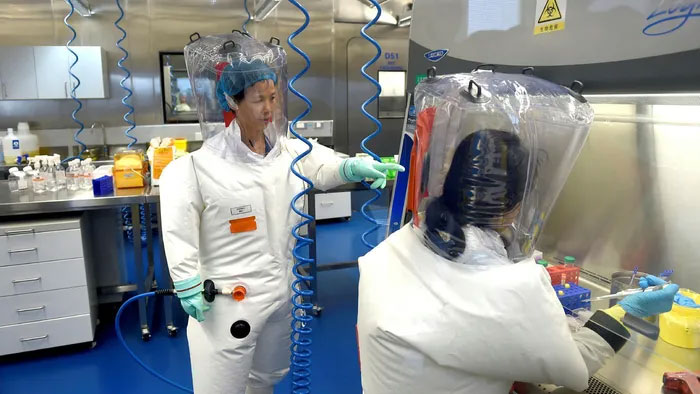Chinese researchers have published detailed information about the BA.2 lineage of the “super mutant” Omicron variant. This is referred to as the “stealth” virus lineage because it is harder to detect compared to the original strain of the Omicron variant.
According to Chinese researchers, the Omicron variant is divided into three lineages: BA.1, BA.2, and BA.3. Among these, BA.1 is the most common lineage. BA.2, known as the stealth lineage, is more difficult to detect because it does not have the gene S deletion mutation, which is a characteristic of the original Omicron virus.

Research room at the Wuhan Institute of Virology (Wuhan, Hubei Province, China). (Photo: AP).
In China, a case of imported infection with the BA.2 lineage has been detected in Guangdong Province. The patient is a 31-year-old man who flew from Muscat (Oman) to Guangzhou (Guangdong Province) on December 24 and was transferred to a centralized quarantine hotel.
On December 27, this individual tested positive for SARS-CoV-2 and was taken to the Eighth People’s Hospital of Guangzhou for treatment. Chest CT scans revealed inflammation in both lungs. On December 28, genetic sequencing results confirmed that the patient was infected with the BA.2 lineage of the Omicron variant.
Compared to the original SARS-CoV-2 virus discovered in Wuhan, the BA.2 lineage has 67 nucleotide changes. At the protein level, a total of 49 amino acid mutations have been identified, including 27 mutations in the spike protein.
According to Chinese researchers, the biological characteristics and transmissibility of BA.2 may differ from the original version of Omicron, as this lineage has significant genetic differences. However, to draw final conclusions about the impact of BA.2, experts need to conduct further research and continue monitoring over a longer period.
On November 26, the Omicron variant was classified by the World Health Organization (WHO) as a Variant of Concern (VOC). On November 27, the first genetic sequencing sample of the BA.2 lineage was reported by health authorities in South Africa to the Global Initiative on Sharing All Influenza Data (GISAID). As of now, the total number of BA.2 genetic samples on GISAID has reached 89, primarily from South Africa, Denmark, Canada, the UK, the US, and India…


















































